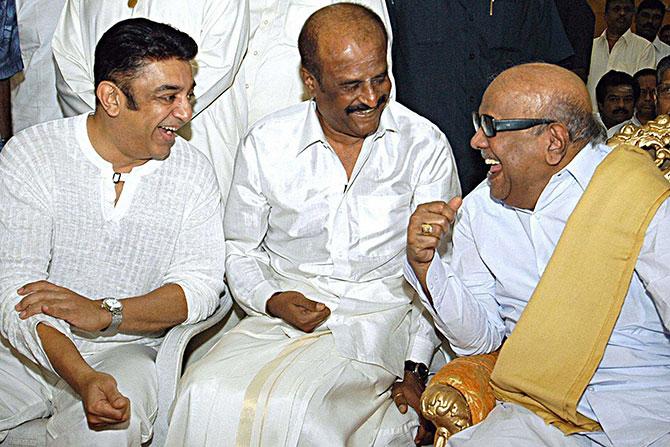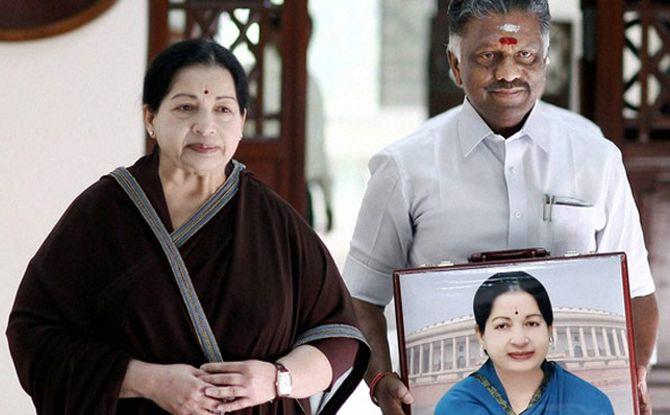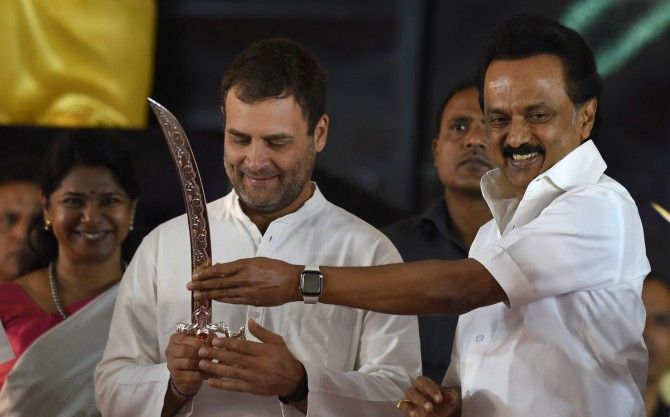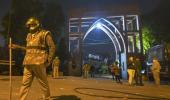The new entrants in Tamil Nadu politics, actors-turned-politicians Rajinikanth and Kamal Haasan, have decided to stay away from the elections, reports T E Narasimhan.

After three years delay in holding elections to local bodies in Tamil Nadu, the Election Commission has announced the polls will be held in two phases, on December 27 and 30.
Citing administrative reasons, state Election Commissioner R Palaniswamy said elections would be held for only the rural bodies while the notification for the urban body polls will be released later.
Indirect elections for the post of mayors and the municipal chairmen will be held on January 11.
The elections will be a test for both the AIADMK and DMK since this is the first time that the strength of the parties will be tested at the grassroots after the death of AIADMK supremo J Jayalalithaa and DMK leader M Karunanidhi in 2016 and 2018, respectively.

The new entrants in Tamil Nadu politics, actor-turned-politicians Rajinikanth and Kamal Haasan, have decided to stay away from the elections.
Political analysts say one of the prime reasons behind Rajinikanth's decision is that if his people fail to perform well, it will impact his debut in the assembly elections of 2021.
As far as Kamal is concerned, while he maintains that "it (not to contest in local body elections) is because his party doesn't have anything to gain and only corrupt parties will go for the election," experts say since his party is yet to establish a foothold at the grassroots, he doesn't want to take chances.
It has been over three years since Tamil Nadu elected mayors, chairpersons, presidents, and ward members to urban and rural local bodies. The delay was due to litigation, natural calamities, the death of Jayalalithaa, etc.
Today special officers are running municipal corporations, municipalities, and panchayats, which, experts say, is against the fundamentals of the three-tier panchayat raj system.
More than Rs 2,600 crore (Rs 26 billion) of central funds meant for rural local bodies' development is awaited because the system is not in place.
In the first phase, areas covering 156 panchayat unions will go to the polls. The second phase will see elections in areas covering 158 panchayat unions.

While, on the one hand, new entrants have decided to stay away, pressure on the leaderships of the AIADMK and DMK is high because both the parties are on an equal footing now.
The ruling party in October won in the by-elections to two assembly constituencies which were earlier held by the DMK and Congress and in the Vellore parliamentary election in August.
While the AIADMK is under pressure to prove itself yet again, the DMK will have to walk the extra mile to win the confidence of the people. It is under pressure to repeat its stupendous performance in the Lok Sabha polls.
"Having emerged victorious in the recent assembly bypolls, the AIADMK has established itself as the people's party. We have proved our strength," said Chief Minister K Palaniswami.
The ruling party recently inaugurated new districts and launched the distribution of the free Pongal gift hamper, which included Rs 1,000 in cash.
The ruling party in recent times has strengthened its grassroots with new additions. Recently former minister and AMMK leader K T Pachai Ammal, with hundreds of supporters, rejoined the AIADMK.
Pughazhendi, a close confidant of AMMK leader T T V Dhinakaran, rebelled against the latter and declared his intention to re-join the AIADMK.
DMK chief M K Stalin blamed the AIADMK for the confusion regarding the local body polls, and said this was why his party had to go to court. However, the DMK was ready to face elections even in the absence of adherence to due process, he said.
While experts argue these elections are important for civic issues, including water-related matters, women's empowerment, the political side of the story is that it gives a strong base for the parties in rural areas.
So it is important for the parties to play their cards safely because fights always turn bitter for the posts of the heads of various local bodies, which are seen as prestigious.
There is much politicisation when it comes to devolving funds and letting various tiers work independently.












 © 2025
© 2025